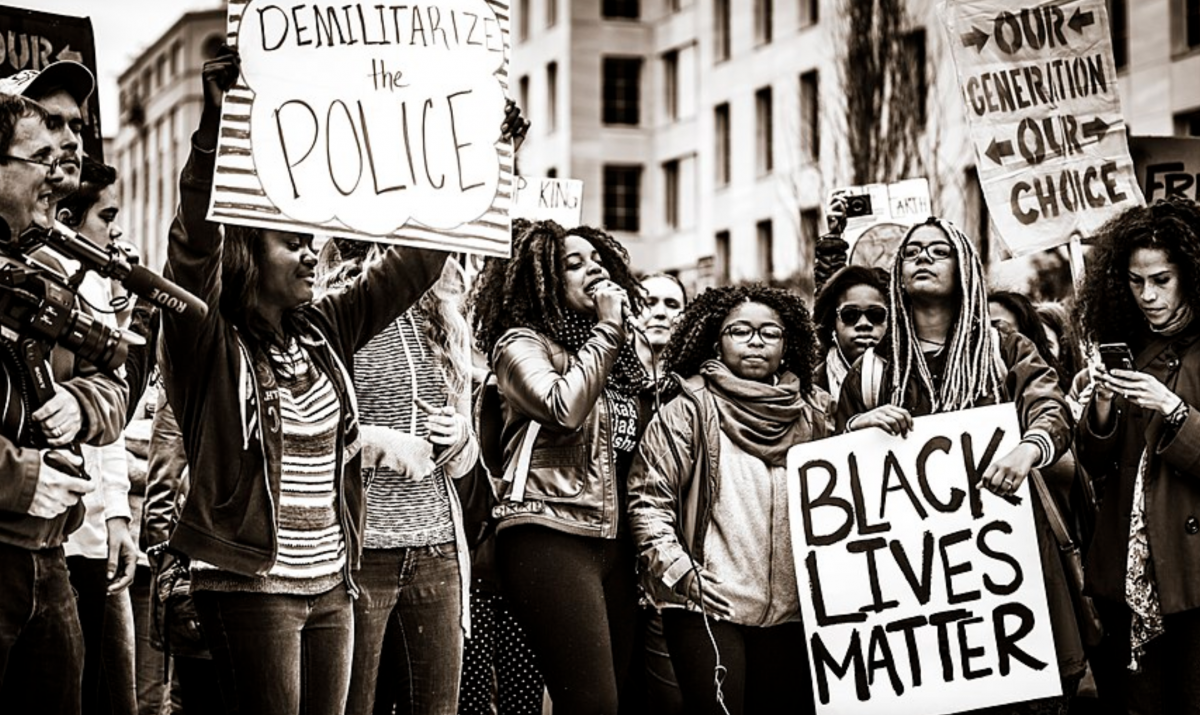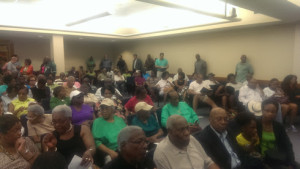Hülya Miclisse-Polat is helping to provide support services to First Generation and Low-Income Students with the Greenfield Intercultural Center.
What are you currently working on in the field of social justice and what are you trying to accomplish with your work?
With the Greenfield Intercultural Center, I help to support First Generation Low-Income students by strengthening food security on campus, organizing social justice events/workshops, and I facilitate various discussions around social justice issues on Penn’s campus. I am also currently working on a short film in collaboration with one of my graduate courses on the toxic water supply in West Philadelphia.
From a very young age, I became involved in grassroots organizing in Miami, where I joined WeCount! an immigrant right’s organization. I became a youth leader there at 15 and was involved with different campaigns such as immigration reform, restorative justice in response to the zero tolerance policies in schools, literacy programs, and youth leadership development.
During my undergraduate career at the University of Miami, I began to organize events on campus in response to the incidents of police brutality in our country. I helped to organize some of the very first #blacklivesmatter demonstrations on campus. I also worked with the cultural organizations to make the campus a more inclusive environment. With the help of my peers, we pressured the administration to respond to the inflammatory comments made by students after our demonstrations. In response, we were instrumental in creating the first “Task Force to Address Black Students’ Concerns” in order to address the lack of inclusivity on campus.
 Who or what has influenced your work and who has inspired your activism?
Who or what has influenced your work and who has inspired your activism?
I was born in Montreal, Canada to a Haitian mother and a Turkish father. At the age of 5, I moved to Miami, Florida. My first memory of being in the United States was coming home from ESOL class crying because I did not understand anything in school, I only spoke French and everything was foreign to me. I was ashamed of my initial minimal English, then I became ashamed of my accent and I was somewhat ashamed of my identity-I was a black immigrant girl who came from a culture that historically was stigmatized and discriminated against.
It was not until I went to a regular public high school, however, that I witnessed so many issues and disparities within our educational system. It was a high school that was predominately Haitian, African-American and Mexican. Most of the students came from immigrant, low-income families. For me, this is when a shift within myself occurred. I was always questioned about my race, and about my culture. To be told “you’re too light to be Haitian” or “aren’t Haitians boat people?” was very hurtful. However, I no longer hid from my identity. Instead, I began to embrace everything my culture had to offer, our music, food, spirituality, and especially our blackness. I think this shift happened because I felt a sense of resilience, a sense of duty to protect my community. Although I was discovering my identity at that time, the same support system was not granted to most students in the public high school that I attended. Some students faced challenges at home such as lack of parental support for homework since a lot of them had immigrant parents who were not fluent in English. With many of these students facing emotional and social instability, most teachers were not equipped with resources to help these students. Instead, they blamed the disruptive behavior solely on the individual. I slowly began to connect the pieces of poverty, violence, and self-hatred that I witnessed to the bigger institutional issues within our society.
My sophomore year of high school my mother took me to a Town Hall meeting that a local organization was hosting. The organization was called WeCount, and it was a nonprofit organization that advocated for immigrant rights. My mother was on the board of directors and she facilitated one of the discussions regarding transportation access for migrant farmworkers. In that meeting, I learned so much about my community that I did not know before. Parents were working long hours, barely made anything and were constantly harassed and racially profiled by the police. I connected the experiences of the parents to the experiences of their children who went to my school. Before that meeting, I was aware of these problems but I did not know how I could be involved in challenging these issues and working to better my community. The Town Hall meeting sparked something in me; it radicalized my view of the institutional issues facing our communities. I became much more prideful of who I was, and appreciated the political conversations that my mother introduced me to early on as a child. She always told me: “you are Black and come from Haitian roots and you should never be ashamed of that. We are descendants of revolutionary women and men, we are powerful.” She is my inspiration for the work that I do.
“We are the descendants of revolutionary women and men, we are powerful.” – Hülya Miclisse-Polat’s Mother
Any important bits of wisdom you would like to share?
I think for me, being an activist means that you are never static, you are always growing and always evolving, and it is important to remember that throughout your journey. What we know now is not what we knew then. I realize that my experiences really ground me and help me make sense of the world and how I conceptualize it, so I am proud of my lived experiences because I did not get here alone, and I will not get to where I am going alone either. Therefore, it is so imperative to bring each other up in this movement, because it is not about us as individuals but it is about us as a collective.
Field of Work
Anti-racism, Environmental Justice, Sexual and Reproductive Health, Immigrant Rights, Rights for Students of Color and Low-Income Students
Social Media



